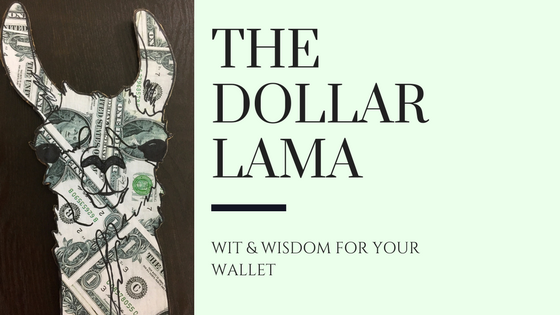Here we are a year away from the 2020 political primary season and one of the major issues being debated by the democratic presidential candidates is student loans. In the last seven years, student loan debt has sky rocketed into the number three position behind mortgages and car loans. Right now, Americans have more student loan debt than credit card debt and it just keeps growing.
For More In Depth Information
If you want to more personal finance tips and strategies, including 5 Student Loan Debt Payment Tips, enter your information and click on "Learn More!"
Check your email for FREE gift details!
Let’s take a minute to run down the major points of discussion about student loan debt on the national political stage so we are a little less in the dark about the whole shebang. First of all, the big debate is about making college free for everyone or forgiving all student loan debt. The next big issue is student loan servicer regulation. Since there is nearly none right now, I would say that is a pretty important topic to tackle as soon as possible. This is particularly true since I doubt student loan debt is “going away” any time soon.
Finally, there is the catchall category of debt, will student loan debt be dischargeable in bankruptcy (or at least with those rules be relaxed), or will there be better relief programs at some point? One can only dare to dream that some more streamlined and reasonable form of relief will be made available to 99%ers any time soon. Seriously, I figure each one of us is more likely to ride on a real unicorn, or be struck by lightning twice before that becomes a reality.
While these are all important topics for discussion, I think the current debate is leaving some important issues out of the student loan debate. For example, there is very little discussion about looking at how colleges and universities are setting their tuition and what they are doing with the money. Colleges and universities are typically non-profit institutions (unless they are specifically for-profit, private schools). That means they are not required to pay a dividend to shareholders. So, with colleges and universities raking in millions of dollars in tuition every year, you have to ask yourself where that money is going? After all, the vast majority of students are only there for four years!
I’ve done a tiny amount of research on this and they manage their money in different ways. Some colleges may be conducting research or specializing in a particular field that requires additional funding. Many colleges are administration heavy requiring more money for salaries. Quite a few are building endowment funds to ensure the livelihood of their institutions and promote future projects. Other institutions provide state of the art buildings and facilities to attract the highest caliber of students. Regardless of how you look at it, it’s important to consider the availability of federal student loan money as a catalyst for the financial behemoths that our modern colleges and universities have become. Maybe it’s time for a little fiscal oversight of our non-profit, post-secondary education system here in the U.S. to get to the bottom of the issue.
I don’t think there’s any argument that the federal student loan system needs a lot of work. Right now, it’s unwieldy and ineffective. The glaring evidence of this is the recent failure of the Public Service Loan Forgiveness program after 90% of the first round of applications were rejected after the initial ten year repayment period.
We are about half way through the twenty year repayment period that you need to participate in before you qualify for forgiveness from some (not all), income driven repayment plans. I’m concerned that the same issues that plagued the PSLF program will haunt the folks who stuck it out in their income driven repayment plans and they’ll have to fight to qualify for forgiveness just like the folks are having to do with the first round of PSLF forgiveness program applications. If that’s the case, things could go from bad to worse since there are millions more people in the income driven repayment plans, than in the PSLF program.
As you can see, I’ve spent a lot of time thinking about the state of student loan debt and how it is poised to change as we embark on the 2020 campaign season. While I do see it as a major political issue, I am skeptical that any significant change will take place at the political level any time soon. However, I am concerned that the financial burden of student loan debt could very well overwhelm 99%ers and cause an economic downturn of some degree. Unfortunately, It will likely take that level of financial calamity to bring the post-secondary education system to their senses and motivate them to re-evaluate their tuition policy on a broad scale. I’m not holding my breath, though.
The truth is, there will probably be some measure of change after the 2020 election is over. What that change will look like and how much it will really benefit 99%ers is a gigantic and scary unknown. It’s hard to tell where any of these chips will fall.
One thing I do know for sure is we as individuals have a great deal of power in the voting booth and every time we reach for our wallets. The best course of action you can take when it comes to student loan debt, is to be your own strongest advocate. Don’t rely on the possibility of student loan forgiveness when you are making your decision about where to go to school and how much student loan debt you should take out. Live within your means and study that way, too!
P.S. Make sure you check out my online courses, books and resources, too! Investing in your money management education is an investment in yourself. That’s the best investment you’ll ever make, I guarantee it!. Don’t forget my weekly Facebook live videos on Facebook.com/newcashview, Instagram @joyalfordbrand and on my YouTube channel NCVTV. You can catch me twice, on Mondays between 3:00 p.m. and 4:00 p.m. for my Monday Money Management Minute and Thursday evenings between 7:00 and 9:00 (Eastern Standard time), for my weekly NCVTV episode. They are packed full of useful and entertaining money management information! If you’ve missed any NCVTV episodes, you can see the latest on newcashview.com or you can check out my YouTube channel and get caught up! You can get there by clicking here. Remember, like and share the NCVTV videos on Facebook and all your social media platforms, so others can benefit from them, too!
#studentloanlama

GET INSTANT ACCESS
Download your FREE gift!
To learn 5 Student Loan Debt Payment Tips, enter your info and click on download.
Check your email for FREE gift download!

